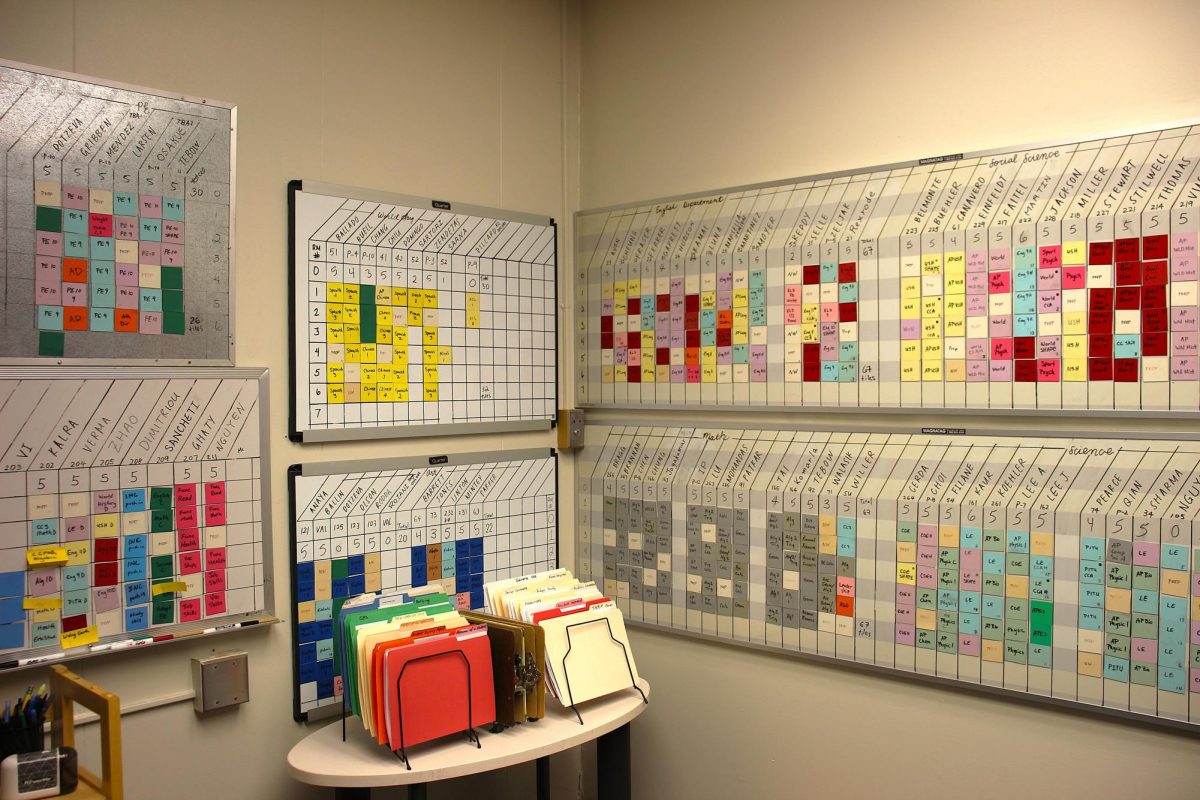No more skipping math, more interactive standardized testing implemented
Kelsey Ichikawa | Staff Writer
The new Common Core standards will implement a change in the way high school students take their math classes. New types of standardized tests and Common Core classes will emphasize critical thinking and real life applications of mathematical concepts. According to Trent Bowers, superintendent of the Worthington, Ohio school district, this new nationwide educational program attempts to resolve the current standards’ issues, which the Common Core homepage calls “a mile wide and an inch deep.”
Irvington’s math department co-chair, Ms. Mohandas, explained that the staff and district have proposed three new main pathways for high school and junior high math: the traditional, intervention, and accelerated plans. In the traditional plan, students will take Common Core 1 (CC 1), Common Core 2 (CC 2), Algebra 1, Geometry, Algebra 2/Trigonometry, and Pre-Calculus from 7th to 12th grade respectively. Meanwhile, students who struggle a bit more in math will follow the intervention plan, in which they will take the same junior high courses as in the traditional plan but will repeat CC 2 in 9th grade and end high school with Algebra 2/Trigonometry. Finally, in the accelerated pathway, for students who want an extra challenge in math, junior high courses will be a merged grouping of CC 1, CC 2, and Algebra 1, and in their senior year they will take Calculus. For those who are even more advanced, the school will allow students to take multiple math classes in one year and do Multivariable Calculus in senior year.
According to Ms. Mohandas, students will no longer be able to skip math courses, such as skipping pre-algebra in 7th grade. The 2014-15 school year will be the last year that an 8th grade Geometry Honors class will exist. All math classes, with the exception of APs, will be redesigned to fit the Common Core standards. Irvington’s math department will have to attend training next year to prepare to teach brand new courses.
Ms. Mohandas believes the change as a whole is a positive one. “It will be a difficult transition, to be sure, because our students have not been prepared for this level of thinking. But there is no doubt that the new system of courses will produce more career-ready students.”
Some students, however, do not agree with the no skipping policy.
“They should keep it the same and still allow students to skip math courses because different people have different skill levels,” remarked sophomore Cathy Wang. “If they’re ready, students should be allowed to develop at a faster pace and challenge themselves with more difficult courses than what everyone else is doing.”
Common Core in California also introduces four new forms of standardized tests, created by Smarter Balanced Consortium. In “multiple response” questions, students will answer multiple choice questions that may require bubbling in two or more of the answers, and in “technology” problems, they will employ mathematical computer skills. In the “construct a response” kind, students will explain their work and reasoning in words. Finally, with performance task questions, students will tackle an extensive math problem in a lengthy examination that will follow a teacher-led activity. “The challenge for teachers and students will be modifying the current lesson plans so that students are appropriately prepared to address these new kinds of tests,” Ms. Mohandas asserted.




















